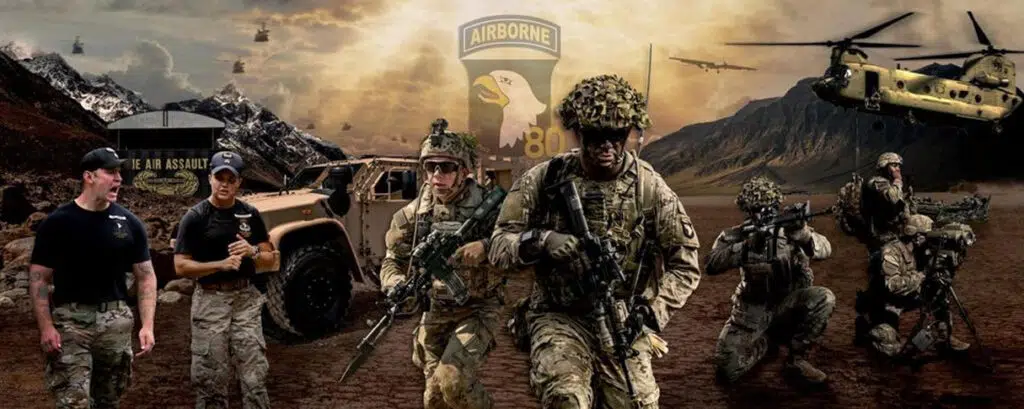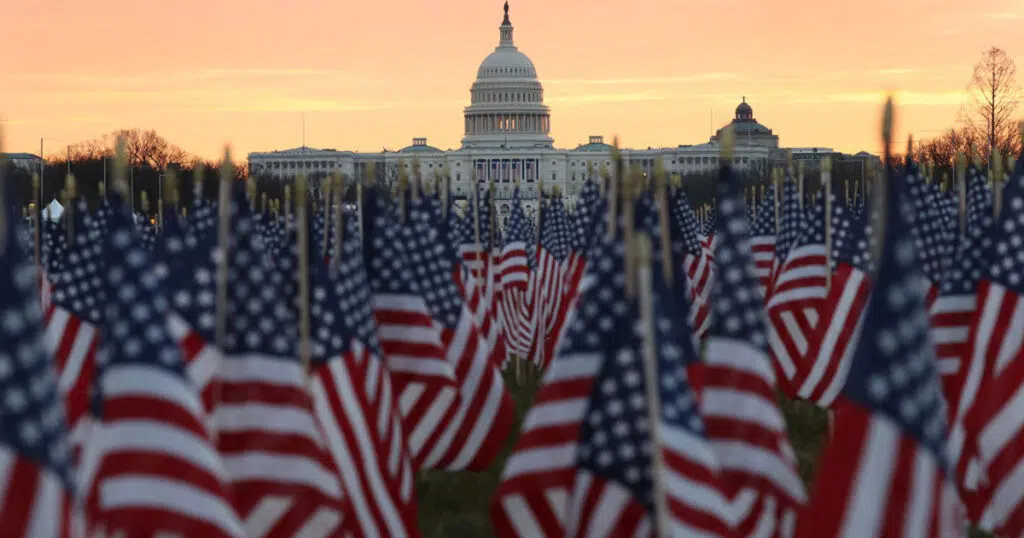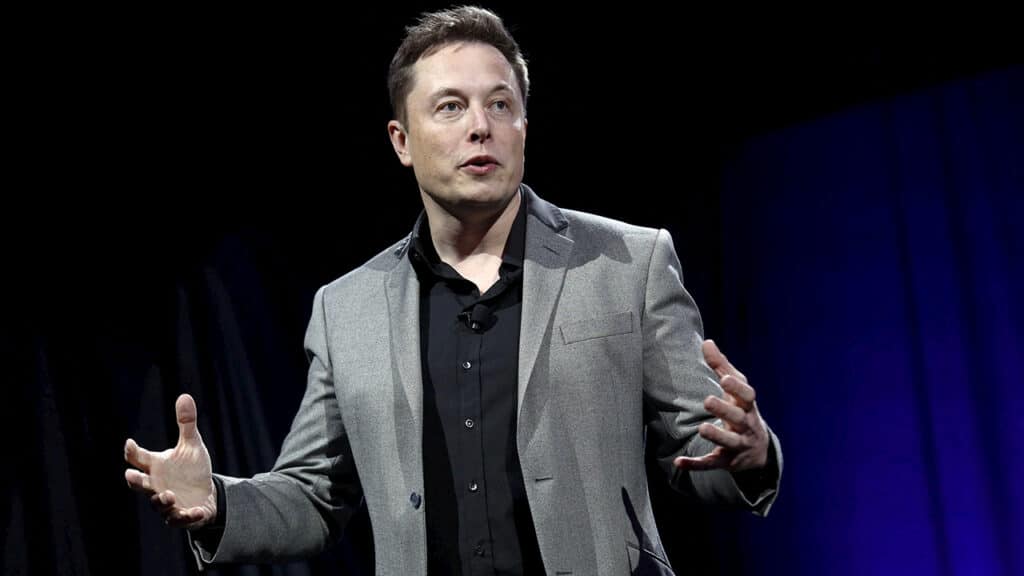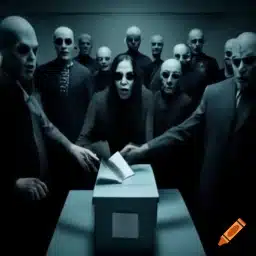
Elite U.S. Army Unit Less Than 200 Miles From Disputed Ukraine Territory
Members of one of the most decorated elite fighting units in United States military history, the U.S. Army’s 101st Airborne Division, also known as the “Screaming Eagles,” have been deployed to Europe for the first time in almost 80 years with tensions mounting between Russia and the American-led NATO military alliance over Russia’s invasion of Ukraine.
Since Feb. 24, when they entered Ukrainian territory, Russian forces have advanced northward from the Crimean Peninsula, a Ukrainian region that Moscow seized in 2014, and sought to push toward the Black Sea coast into the Kherson region, in an effort to capture the Ukrainian port cities of Mykolaiv and Odesa.
The goal of that effort has been to cut off all access to the sea, leaving Ukraine’s military forces and country as a whole landlocked.
Yet, that incursion has carried Russian troops nearly to Ukraine’s border with NATO ally Romania. That explains why the “Screaming Eagles” have ended up positioned an estimated 300 kilometers, or less than 200 miles away from Kherson.
“We’re ready to defend every inch of NATO soil,” Brigadier General John Lubas said in an interview with CBS News. “We bring a unique capability, from our air assault capability… We’re a light infantry force, but again, we bring that mobility with us, for our aircraft and air assaults.”
About 4,700 soldiers from the 101st Airborne’s home base in Fort Campbell, Kentucky, have been sent to conduct war games along and reinforce NATO’s eastern flank.
Those commanding the “Screaming Eagles” assured CBS News their forces are always ready to fight and even if their main mission is defend NATO territory, if the fighting in Ukraine escalates or there is an on NATO, those troops would be ready to cross the border into Ukraine.
But, lest there’s any question about why the U.S. seems to be inserting itself in the Ukraine conflict at this point in time, perhaps the real question is, when did America’s intervention in what many global observers are already calling World War III actually begin?
President Joe Biden, of course, defiantly announced on March 22 that the U.S. “will not fight a war with Russia in Ukraine…Direct conflict between NATO and Russia is World War III, something we must strive to prevent.”
Since then, however, reporting has indicated both NATO and U.S. officers have been fully engaged in Ukraine’s operational war planning and intelligence gathering.
So, maybe it’s not so surprising Biden has promised his Ukrainian counterpart Volodymyr Zelenskyy the U.S. will provide Ukraine advanced air systems, as a response to the Russian launch of missiles against several cities in Ukraine, including its capital, Kyiv.
Biden apparently made the offer of support in a phone call with Zelenskyy ahead of a meeting of the Group of Seven to discuss options for Ukraine — and how to hold Russia responsible for the attacks, which left at least 14 people dead.
“President Biden pledged to continue providing Ukraine with the support needed to defend itself, including advanced air defense systems,” according to a White House statement about the call.
Biden also told Zelenskyy the U.S., its allies and partners will continue holding Russia “accountable for its war crimes and atrocities in Ukraine with security, economic, and humanitarian assistance,” the White House said.
Ukraine said earlier this week that it had begun its counteroffensive after many weeks of teasing one, and after a stalemate with little progress from either side. Ukraine said its counteroffensive started in Kherson and other regions in the country’s south.
The U.S. reportedly advised Ukraine to limit the scope of its operations, its immediate objectives and in terms of the amount of land Ukrainian forces would need to cover. Officials from the U.S, and Ukraine confirmed to CNN the streamlined strategy was meant to ensure Ukraine would not overextend itself and get itself mired.
With Biden’s stepped-up involvement in Ukraine as a backdrop, a day after House progressives sent a letter to Biden urging him to change his approach to Russia’s invasion, the group abruptly rescinded its letter, apparently at the behest of Democratic lawmakers.
“The Congressional Progressive Caucus hereby withdraws its recent letter to the White House regarding Ukraine,” said Rep. Pramila Jayapal (D-WA), chair of the caucus, in a statement Tuesday.
The change-about comes after frustrated Democratic lawmakers via social media tried to offer their explanations of the letter, which was originally drafted and signed by 30 members over the summer and wasn’t recirculated ahead of its release to the public on Monday.
In the letter, House progressives urged Biden to directly engage diplomatically with Russia. They asked the president to “pair the military and economic support the United States has provided to Ukraine with a proactive diplomatic push, redoubling efforts to seek a realistic framework for a ceasefire.”
Letter signatories proclaimed they were contrite and didn’t know how and why the supposedly-unvetted letter was released.
A former leader of the progressive caucus, Rep. Mark Pocan, D-Wis., , tweeted he had “no idea” why the letter was made public.
Similarly, Rep. Mark Takano, D-Calif., another signatory who also chairs the Veterans’ Affairs Committee, afterward issued a statement that “only Ukrainians have a right to determine the terms by which this war ends.”
Jayapal added that the message of House progressives is “being conflated” and offered her spin that House Minority Leader Kevin McCarthy was using the episode politically when he suggested his Republicans could pull back funding for Ukraine if they take back the House next month.
“The proximity of these statements created the unfortunate appearance that Democrats, who have strongly and unanimously supported and voted for every package of military, strategic, and economic assistance to the Ukrainian people, are somehow aligned with Republicans who seek to pull the plug on American support for President Zelensky and the Ukrainian forces,” Jayapal wrote. “Nothing could be further from the truth.”
Meanwhile, Romanian Defense Minister Vasile Dincu, who said earlier this month that negotiations, supported by international allies, would be the only way to achieve a lasting peace in the war against Ukraine, submitted his resignation after being roundly criticized by Romania’s president and prime minister.
“This morning I submitted my resignation from the position of Minister of National Defense to the Prime Minister of Romania, Nicolae Ciuca,” Dincu posted on his Facebook page.
Iohannis announced that since Ukrainians are paying for the war with their own blood, only they can determine when and what could be negotiated. He noted his comments reflected the official position of Romania, with membership in both the NATO security alliance as well as the European Union.
“My gesture (resignation) comes as it is impossible to cooperate with the Romanian president, the army’s commander-in-chief,” Dincu said in the Facebook statement. “I think my withdrawal from the post is necessary so as to not harm decisions and programs which require fluid command chains and to not block a series of projects which are absolutely necessary for…the ministry and the army.”
On October 5, Nikolay Patrushev, Russia’s Security Council head, recognized his country is now fighting NATO in Ukraine. Russian President Vladmir Putin also emphasized that Russia has nuclear weapons and is prepared to use them “when the very existence of the state is put under threat,” as Russia’s official nuclear weapons doctrine declared in June 2020.
Following that doctrine, analysts say Russia’s leaders would view losing a war to the U.S. and NATO on their own borders as meeting the threshold for the use of nuclear weapons.
Biden during a fundraising speech on Oct. 6 that Putin is “not joking” and it would be difficult for Russia to use a “tactical” nuclear weapon “and not end up with Armageddon.”
Biden announced the danger of a full-scale nuclear war is higher now than at any time since the Cuban missile crisis in 1962.



